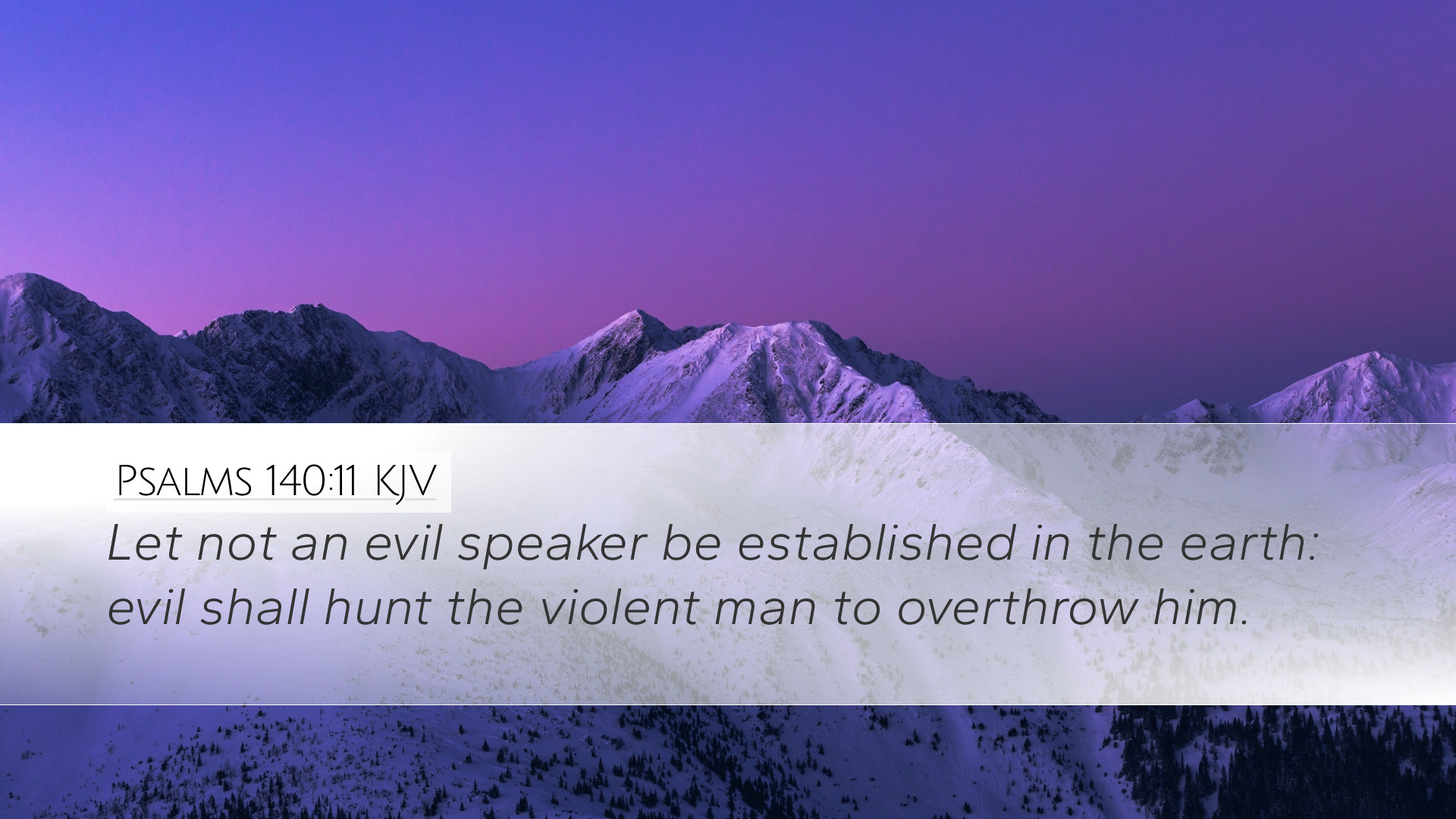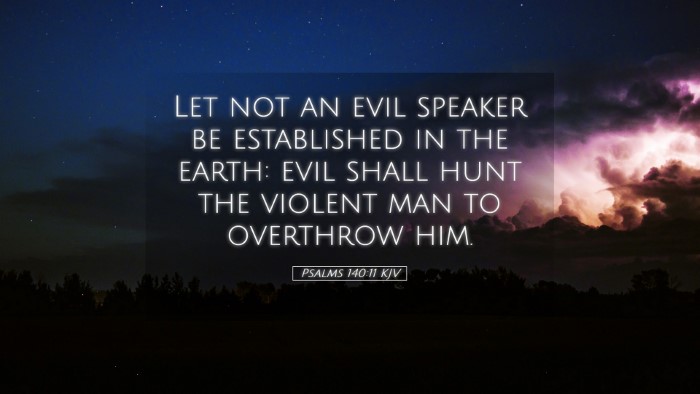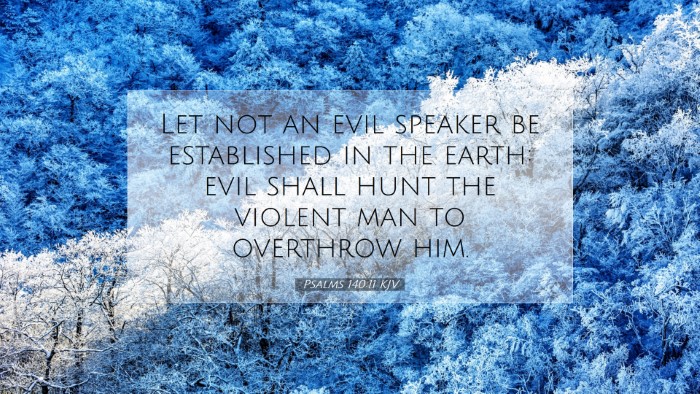Commentary on Psalms 140:11
Psalms 140:11 states: "Let not an evil speaker be established in the earth: evil shall hunt the violent man to overthrow him." This verse encapsulates the essence of divine justice and the moral ordering of society, making it a profound subject for theological reflection.
Introduction
The Psalmist, traditionally understood to be David, presents a plea to God concerning the fate of those who speak evil and commit wicked acts. The juxtaposition of the fate of the wicked with that of the righteous serves as a central theme in this scripture and invites deeper contemplation on the nature of divine justice.
Analysis
In examining Psalms 140:11, insights from various public domain commentaries highlight several important themes:
1. The Nature of Evil Speech
Matthew Henry emphasizes the destructive consequences of slander and malicious speech. He argues that “an evil speaker, who spreads lies and perverts the truth, is a significant threat not only to individuals but also to the broader society.” Thus, the Psalmist's request is not merely for individual deliverance, but for the broader protection of societal integrity.
2. Divine Justice and Retribution
Albert Barnes elaborates on the theme of divine retribution, asserting that “evil shall hunt the violent man.” Barnes explains that the consequences of one’s actions are inescapable: the violent individual who perpetuates evil will ultimately find themselves ensnared by their own malice. This speaks to the moral law of the universe, where justice is inherent, and the deeds of the wicked shall ultimately lead to their downfall.
3. The Character of the Righteous
Adam Clarke provides insight into the contrast between the evil speaker and the righteous. He notes that while the wicked may seem prosperous for a time, God’s ultimate judgment will prevail. Clarke underscores the importance of the righteousness and integrity of the faithful, maintaining that through prayer and supplication, believers can trust in God’s eventual justice.
Theological Implications
The implications of Psalms 140:11 extend beyond a mere invocation for justice. This verse asks believers to reflect on their speech and actions in the midst of a fallen world. The community's moral fabric is upheld or torn down by the words of its members, suggesting a collective responsibility to speak truth and uphold righteousness.
1. Community and Accountability
Believers are called to hold one another accountable for their speech and actions. The verse serves as a reminder that the community can either elevate or undermine righteousness. The fate of the evildoer is intertwined with the overall moral state of society.
2. The Role of Prayer
Prayer as depicted in this Psalm is not merely a plea for personal protection but a cry for justice that resonates with the communal nature of faith. The act of bringing these concerns before God reflects a reliance on divine sovereignty and protection against the forces of evil that threaten to establish themselves in society.
3. Assurance of God’s Sovereignty
In the context of this verse, God's sovereignty is affirmed. While the natural consequences of evil actions may not always manifest immediately, the assurance that “evil shall hunt the violent man” conveys the eternal truth that God sees and will respond to injustice appropriately. Trusting in God's timing and justice gives comfort to the believer when confronted with the prevalence of evil.
Practical Applications
For pastors, students, theologians, and Bible scholars, Psalms 140:11 offers several actionable insights:
- Examine Personal Speech: Reflect on how one's own words can impact others. Strive to speak truth and uplift the community.
- Encourage Accountability: Create environments within church communities where congregants hold each other accountable for righteous behavior.
- Emphasize Justice in Sermons: Remind congregations of the importance of divine justice and the reality that God will ultimately reconcile all wrongs.
- Pray for Protection: Encourage prayer not just for personal safety, but for the spiritual well-being of the entire community facing evil.
Conclusion
Psalms 140:11 serves as a powerful reminder of the stakes involved in how we communicate and interact within our communities. Through the lens of public domain commentaries, the depth of the Psalmist's plea is unveiled, encouraging believers to pursue righteousness and seek God's justice in a world rife with evil. As we navigate the complexities of life and faith, may we remember the words of the Psalmist and actively engage in the work of uplifting truth in our spheres of influence.


